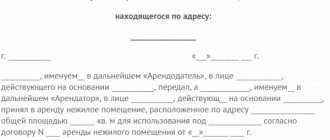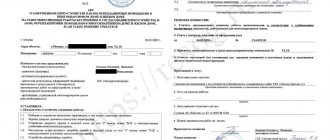“Civil Code of the Russian Federation (Part Two)” dated January 26, 1996 N 14-FZ (as amended on December 27, 2019, as amended on April 28, 2020) Civil Code of the Russian Federation Article 689. Agreement for free use
1. Under an agreement for gratuitous use (loan agreement), one party (the lender) undertakes to transfer or transfers an item for gratuitous temporary use to the other party (borrower), and the latter undertakes to return the same item in the condition in which it received it, taking into account normal wear and tear or in the condition stipulated by the contract.
2. The rules provided for in Article 607, paragraph 1 and paragraph one of paragraph 2 of Article 610, paragraphs 1 and 3 of Article 615, paragraph 2 of Article 621, paragraphs 1 and 3 of Article 623 of this Code are respectively applied to a contract for gratuitous use.
3. The rules provided for in Article 609 of this Code also apply to an agreement for the gratuitous use (loan) of an object of cultural heritage.
Why do you need a free use agreement?
An acquaintance, a brother, a matchmaker, a non-relative, a stranger, or anyone else, approached the owner of the property with a request: “Register me in your apartment, it’s really necessary.” The owner reluctantly agreed to issue a registration, in which case a citizen can be discharged only through the court, and they came to the passport office (MFC). They brought passports, documents on property rights, and the passport officer asked: “On what basis will you apply for permanent registration at your place of residence?” And this question can amaze anyone. So what kind of reasons can there be and which one to choose?
First of all, let's start with what property rights are. This right consists of three equal rights:
- The right of ownership is mastery over a thing.
- The right to dispose, everything is clear and so.
- The right to use is the extraction of useful properties from a thing. Living in a dwelling is the right to use the dwelling. Is it possible to transfer the right to use a home to another person other than the owner? Yes, you can.
Registration at the place of residence, according to popular registration, is an administrative procedure confirming the permanent residence of a citizen in a specific dwelling (apartment, room, private house, etc.).
As we just found out, living is the use of housing. And, of course, when registering a non-owner of residential premises in a private home, a representative of a government authority asks the question: “How was the right to use the housing obtained?” At the time of writing this article, there are only three options for transferring the right to use private residential premises:
1. Oral agreement between the property owner and the user.
This oral agreement is reflected in the statement of the owner of the property, upon permanent registration of the citizen, that he provides housing for the registered person to live in. From a legal point of view, this is not a very correct option, since no written contracts or agreements are drawn up between the owner and the user.
2. Commercial lease agreement.
The agreement implies a paid transfer of residential premises from the owner to the user (tenant) for money, with all the ensuing tax obligations.
3. Agreement for free use.
An agreement under which the owner of the property transfers the residential premises to the user free of charge, that is, without profit or, more simply put, for free. We will talk about it in more detail.
What to choose as a basis is up to the homeowner to decide.
For those who register, the basis for registration does not play any role. We recommend choosing a contract for the free use of residential premises as a basis. First of all, because this agreement is a written set of rights and obligations of both the homeowner and the user (tenant). The second and no less important circumstance is that if you do not take money for the registered person’s accommodation, then this should be reflected in the contract itself. It is impossible to conclude a commercial lease agreement free of charge. Even if it is a small amount, under a social tenancy agreement the employer must pay it to the owner, and this always has tax consequences.
The contract for gratuitous use is concluded in a simple written form and does not require mandatory notarization. If, on the basis of this agreement, permanent registration of a citizen will be issued, then the agreement must be of unlimited duration. Why? If the contract is fixed-term, then temporary registration will be issued, at the place of stay, for the duration of the contract. Temporary registration at the place of stay is fundamentally different from permanent registration at the place of residence.
It is also necessary to pay special attention to the negative consequences of permanent registration at a citizen’s place of residence for the homeowner. Some time has passed since the citizen’s registration, the owner’s plans have changed, but anything could have happened, the owner wanted to sell the apartment, had a fight with the person registered, etc. etc., but the person registered did not want to check out of the apartment on his own. What to do? Go to court. Only a court can remove a permanently registered citizen from permanent registration against his will. This is where the fun begins. If you registered a citizen based on an application, you will have to prove with testimony all of your oral agreements. If the citizen continues to live in the home, then the court will have to prove the impossibility of living together. In general, the matter is long and tedious.
But in a gratuitous use agreement you can always refer to Art. 699 of the Civil Code of the Russian Federation - unilateral refusal to fulfill a contract for gratuitous use. By default, the refusal period is set to one month. The user was notified in writing one month in advance, unless a different period was established by the contract, and he has no grounds for further use of the home. Yes, there will be a trial ahead to recognize the user as having terminated the right to use and remove him from permanent registration, but the trial itself will be much easier.
Civil Code of the Russian Federation Article 699. Refusal of the agreement for free use
1. Each of the parties has the right at any time to cancel a contract for gratuitous use concluded without specifying a period by notifying the other party one month in advance, unless the contract provides for a different notice period.
2. Unless otherwise provided by the agreement, the borrower has the right at any time to refuse the agreement concluded with an indication of the term, in the manner provided for in paragraph 1 of this article.
All of the above is not theoretical speculation, but, alas, life practice, due to the fact that one of the directions of our legal agency Moscow-v.com is deregistration of citizens at their place of residence, or, more simply put, deregistration through the court.
Therefore, we recommend that when registering a citizen, they draw up a free use agreement. A sample is shown below.
Well, a small life hack for those who read the article to the end. To avoid notifications to the user in case of unilateral refusal of the free use agreement, you can also immediately sign an additional agreement to terminate this agreement a year in advance or with an open date. This is done so that after a year, if a citizen leaves for a new place of residence and refuses to leave the apartment, the owner has the opportunity to quickly discharge him through the court. There is an agreement, there is its written termination, that is, the tenant, by his own consent, terminated his right to use the residential premises. There are no longer any grounds for a tenant to register in the owner’s apartment.
- We will help you draw up a free use agreement.
- Rent an apartment.
- Discharge a person through the court.
Underwater rocks
When drawing up the document, it is possible to indicate the period during which the borrower will be able to use the apartment. If it is not indicated, then at the legislative level it is considered that the housing has been transferred for lifelong ownership. However, it is possible to terminate the loan at any time. This can be done by both the lender and the borrower.
As for a notary, he is not required in this procedure. It is enough just to have the signatures of both parties to the transaction. The document itself is drawn up in writing. It is drawn up at the request of one of the parties. However, the obligation to conclude an agreement is not regulated at the legislative level, so this procedure can be neglected.
In any case, it is still recommended to conclude an agreement, because with its help it becomes possible to approve certain rules and obligations. This question is especially relevant in cases where the lender cannot trust the person 100 percent.
When concluding a residence agreement, the parties receive the following benefits :
- Guarantor of reliability and safety. If an agreement is drawn up, then there is no doubt that all conditions will be met, because it is a legal document. When the lender and borrower put their signatures, they agree to comply with all the rules specified in the act.
- The housing user will be required to pay for all utilities and other services provided for the apartment.
- The borrower undertakes to monitor the condition of all material things located in the apartment. If a situation arises when something disappears or breaks, the resident will have to compensate for the damage received or restore the value on his own.
- The resident receives the legal right to register in the apartment. This allows you to obtain legal registration.
- If the document is drawn up for a specific period and not indefinitely, then the lender does not have the right to evict the borrower, even if the latter violates all prescribed obligations. It is extremely important to take this fact into account when composing a loan.
Preparation of contract
To draw up an agreement on the gratuitous transfer of property, as a rule, a standard form is used, in which the wishes of each party are entered. The main points of the agreement are as follows:
- At the beginning of the document, all the details of the parties to the agreement, the place and time of signing the document, their passport and contact information, and registration addresses are written down.
- A detailed description of the subject of the contract with the necessary and important parameters. Indicate ownership, describe the condition of the property.
- Indicate the rights and obligations of the parties, conditions for termination of the agreement.
- Description of the transfer procedure. If necessary, terms of use are specified.
- Specify the responsibility of each party and methods of compensation in case of damage or imposed penalties.
- Dates for entry into force of the document and signatures of the parties.
After downloading a standard form from the Internet, the parties make all the necessary amendments for a specific agreement. If the object is an apartment, then its description indicates the quality of repairs and living conditions. A prerequisite is the use of the object for its intended purpose. If there are any damages, the owner must indicate this initially in the transfer deed in order to avoid litigation later. Legal aspects are also spelled out in Art. Art. 689, 607, 623, 609 of the Civil Code of the Russian Federation. The transfer certificate is signed by both representatives.
Nuances of contractual relations
The main advantage of the loan is free use of the property. But specific obligations and rights arise between the parties. Both sides win. The borrower must fulfill a number of obligations:
- Carry out current and major repairs.
- Maintain property or property in good condition.
- Ensure security of the facility.
- Pay utility bills.
- Fulfill the obligations specified in the contract.
The owner is obliged:
- Provide an object in proper condition (commercial real estate, plot of land, apartment).
- Notify the recipient of any changes.
- Provide the necessary documents and keys.
An agreement for gratuitous use for an indefinite period is not a restriction on the owner’s rights to dispose of property at his own discretion.
Basic Concepts
The main distinguishing feature of the gratuitous use (loan) of real estate from the lease is the transfer for free use to third parties, that is, if the parties agree, there is no rent. But for many positions there are many similarities to the hiring procedure. The agreement does not contain terms of payment for the use of an object, which can be a plot of land, an apartment, a country house, or commercial real estate. Despite the freedom of interpretation of legislation, the transaction must comply with the norms of the Civil Code of the Russian Federation. Both legal entities and individuals can rent out property for free use.
According to the definition of gratuitous use, the owner of movable or immovable property transfers it to a third party free of charge for an indefinite period and enters into a transaction. The deadline can be agreed upon in advance. In turn, the borrower must return the borrowed property in the same condition, but taking into account natural wear and tear. In such a transaction, there is no transfer of ownership rights, so registration of an agreement for the gratuitous use of non-residential premises or other objects in Rosreestr is not required. Often the subject of the contract is movable property.
If the property is provided free of charge, it could be transferred without legal documents. It is beneficial for the borrower to use a plot of land, rent a building, or use a car or other equipment for free. But to reduce risks and possible claims in accordance with the Civil Code of the Russian Federation, an agreement between the parties is drawn up and signed by the participants. As a rule, a standard form is used, but you can draw up a loan agreement in any form.
Rules of law
The transfer of property for use free of charge is regulated by Federal Law No. 122-FZ and the Civil Code of the Russian Federation.
Attention! Only those transactions that change the legal status of property undergo state registration. This may be: the emergence or termination of a right, its transfer from one person to another. An agreement for gratuitous use is subject to state registration only for cultural heritage sites of national significance.
If during the transfer the principle of free use is violated or is replaced by hiring and rent, then the transaction will be canceled and not valid. There is a register of objects related to the cultural heritage of Russia, which are state property. Based on the appropriate agreement, these objects can be transferred free of charge to the following categories of organizations:
- Legal entities that are engaged in the preservation of ancient monuments and Russian culture.
- Communities for the disabled or children's creativity.
- Companies involved in charity.
- Institutions operating in the field of culture.
- Religious denominations.
- Various government agencies and research centers.
The transfer of all objects from the register is subject to state registration, regardless of the validity period of the agreement.
conclusions
With the free use of any type of real estate and land, various types of payments are excluded. The contract protects both parties to the transaction. In this case, the borrower is obliged to maintain the received property in perfect condition, pay utilities and carry out repair work as necessary. If an attempt is made to evade income tax under the guise of a free use agreement, the owner runs a high risk of being subject to penalties. The document can be appealed in court at any time.








